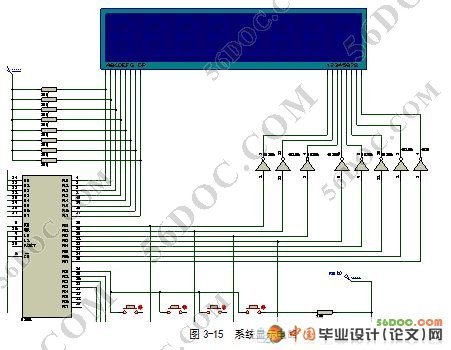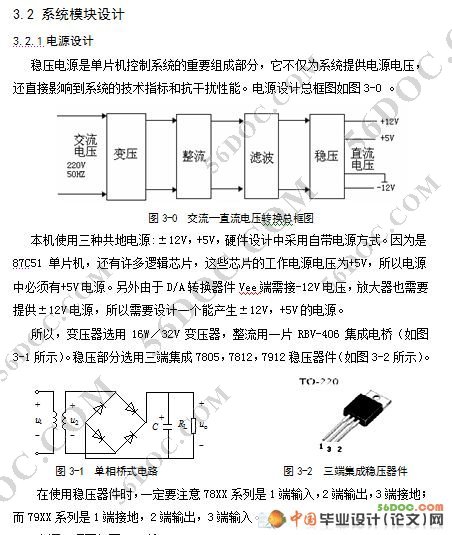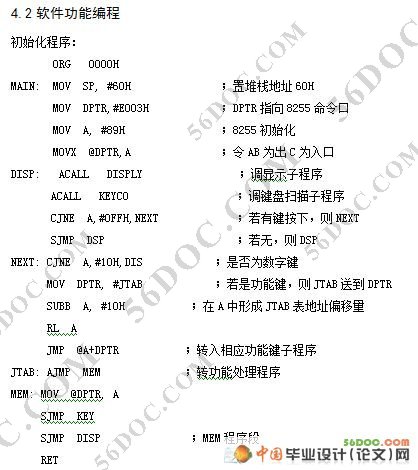基于单片机的多功能信号发生器设计(新品)
无需注册登录,支付后按照提示操作即可获取该资料.
摘要
单片微型计算机(简称单片机)作为微型计算机的一个很重要的分支,自它诞生以来至今,以其极高的性能价格比以及一系列人所共识的优点,受到越来越多的工程技术人员的重视。现在,单片机已广泛地应用在智能仪器仪表、机电设备过程控制、自动检测、家用电器和数据处理等各个方面。
设计了由单片机控制的多功能信号发生器。系统以低功耗的8位单片机87C51为核心,配置相应的外设及接口电路,用汇编语言开发,组成了一个多功能频率信号发生系统。该系统运用单片机控制产生正弦波、三角波、方波及锯齿波等波形并且其幅值为连续可调。该系统既可用于实验,又可作为基本的信号发生装置。
关键词:信号发生器;多功能;单片机
Design of multifunction Signal generator
ABSTRACT
Being a main branch of micro-computer and by its advantage of its much higher ratio of property to price the Single-Chip Micro-Computer (SC MC),since it has been invented up to now ,has attracted more and more engineers and technicians to pay their attentions to its application field.
This article introduces the design process of applying Single-chip Micro-computer to control the multifunctional signal generator.The system is based on the single chip microcomputer of low power and 8•bit SCMC—87C51 and is equipped with corresponding outside equipment and interface circuit.It is developed by complication language and makes up a multi—frequency signal—generating system.The system uses SCMC to control and generate different kinds of signal wave form,such as sine wave form,triangle wave form,square wave form,the teeth of saw wave form and so on.The amplitude of signal generated by generator can be adjusted continuously.This system can be used not only in teaching experiments but also as basic signal—generating equipment.It is very useful in different areas in reality.
Key words: signal—generator;multifunction;single—chip micro-computer




目录 21000字
摘要 II
ABSTRACT III
第一章 绪论 1
1.1信号发生器概述 1
1.2信号发生器数模转换背景 1
1.3单片机的发展应用及结构 3
1.3.1 单片机的发展应用 3
1.3.2 单片机的结构 5
1.4 论文的主要内容 8
第二章 系统设计方案 10
2.1 方案提出 10
2.2 总体设计 11
第三章 硬件设计 12
3.1 总体硬件设计 12
3.2 系统模块设计 12
3.2.1电源设计 12
3.2.2 时钟与复位电路设计 15
3.3 8255扩展电路 17
3.4 显示器接口设计 23
3.5 4*4行列式键盘设计 27
3.6 0832DA转换电路 30
第四章 软件设计 34
4.1软件设计主流程图 34
4.2软件功能编程 35
第五章 系统仿真及测试 43
总 结 45
参考文献 46
致谢 47
附录 48
